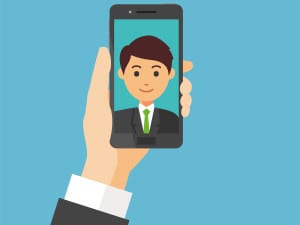The iPhone X is starting to find its way into the hands of early reviewers, and they are putting its new Face ID system to the test.
 It’s one of the flagship features of Apple’s big new iPhone, and by positioning it as an authentication system that completely replaces its pioneering Touch ID fingerprint recognition system, Apple clearly wants Face ID to be seen as revolutionary. It isn’t, of course – not quite; there are lots of facial recognition solutions available for mobile devices. But very few employ the kind of infrared technology used by the iPhone X to establish a three-dimensional portrait of a user’s face, and Apple does differentiate itself with its claim that the system’s ability to identify a user is accurate to one in a million.
It’s one of the flagship features of Apple’s big new iPhone, and by positioning it as an authentication system that completely replaces its pioneering Touch ID fingerprint recognition system, Apple clearly wants Face ID to be seen as revolutionary. It isn’t, of course – not quite; there are lots of facial recognition solutions available for mobile devices. But very few employ the kind of infrared technology used by the iPhone X to establish a three-dimensional portrait of a user’s face, and Apple does differentiate itself with its claim that the system’s ability to identify a user is accurate to one in a million.
So how is it playing out in practice? Asking himself, “Does it work?” Wired’s Steven Levy offers a nearly definitive answer: “Pretty much.” Levy reports that it hasn’t authenticated anyone else he’s tried it on, and it wouldn’t authenticate his own portrait either. But there has also been times when it wouldn’t authenticate him despite having “a clear view” of his face. Levy says that Apple told him he probably wasn’t making sufficient eye contact to satisfy Face ID’s ‘attention aware’ feature in those cases; it may also be that its underlying machine learning software just needs more time to refine its powers. In any case, Levy reports that he has gotten more or less used to unlocking his device with a face scan, and that he “really liked” using Apple Pay with Face ID verification.
Meanwhile, multiple outlets have been looking into whether Face ID gets fooled by twins. It seems like it does. Rounding up unscientific tests from Business Insider, Mashable, and The Wall Street Journal, 9to5Mac reports that Face ID couldn’t tell the difference between twins in multiple cases, suggesting a false match rate of something like three in four, based on the “extremely limited testing”.
Is this a real problem? Most people don’t have an evil twin bent on gaining access to their iPhone X. Most people don’t have an iPhone X, for that matter, and won’t for some time, if industry analysts are right that Apple is facing serious production delays for the device. But the early reviews suggest that when consumers do get their hands on Apple’s flagship new device, they could possess one of the most sophisticated biometric security systems on the market.

Follow Us